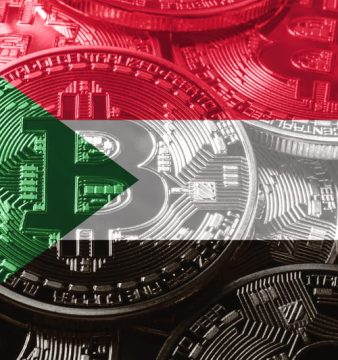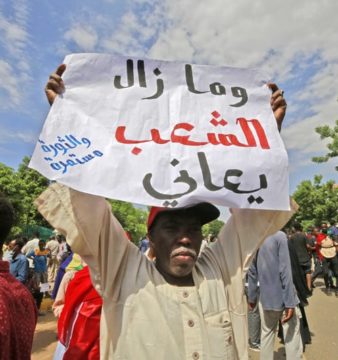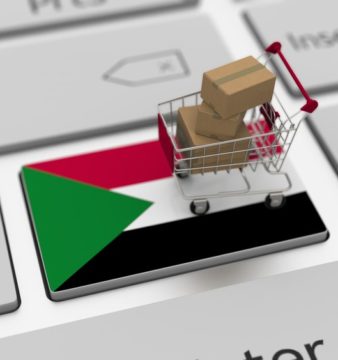Taking Sudanese Entrepreneurship to Another Level: The All-New Approach of Savannah Innovation Labs
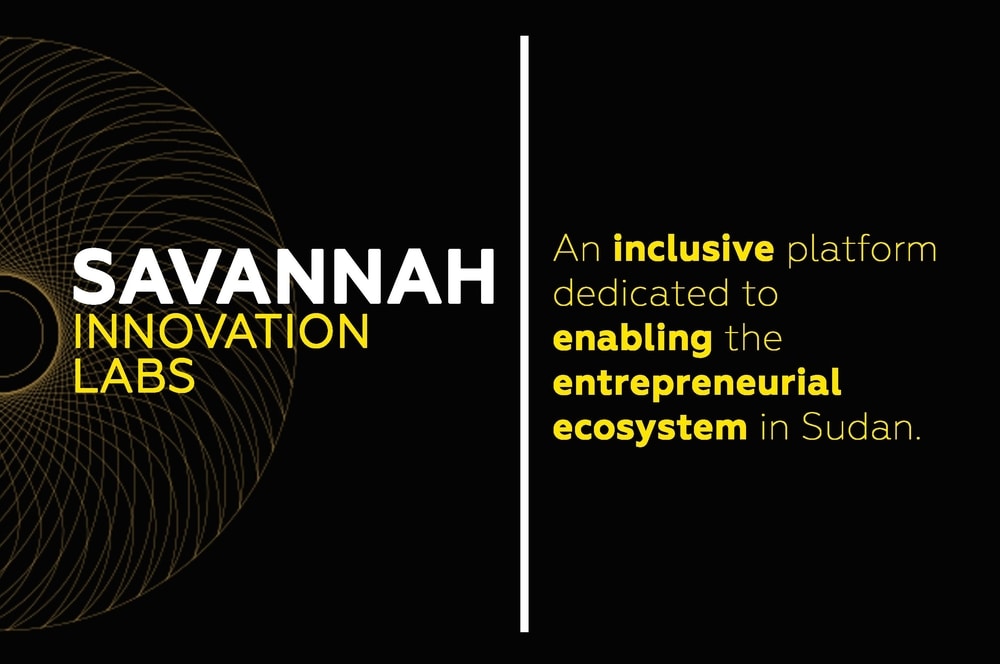
There is noticeable movement in the entrepreneurship atmosphere in Sudan. Plenty of individuals are trying to make their way on their own by starting businesses. Some of them succeed, some others don’t. Reasons for success and failure vary, but one thing stands out clear: There is a need for guidance – a way to show those starting a business important do’s and don’ts.
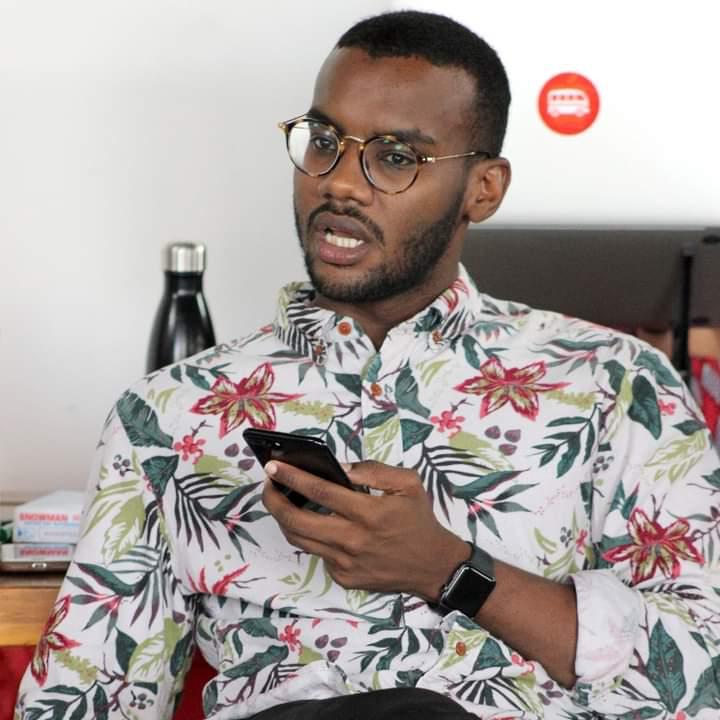
Attempting to fill that gap is 25-year-old energetic banking and business expert Yousif Yahya who recently established Savannah Innovation Labs in 2018-19. Yahya returned from the USA to Sudan after a successful spell at the ‘Big Apple’, New York City. During his time in the USA, Yahya was an employee in the department of wealth management at Union Bank of Switzerland (UBS). After his return to Sudan in 2018, he was a consultant at the Ministry of Finance in Sudan.
‘If you’re comfortable with being paid a USD1 million salary and you don’t know how to earn that amount by yourself, you will not risk it and go for it on your own,’ said the founder of Savannah Innovation Labs, talking about how to motivate and turn visionaries and potential investors into actual entrepreneurs. But is it possible? Is the environment in Sudan hospitable enough for entrepreneurship, and the growth and development of successful businesses? Businesses such as small and medium-sized enterprises (SMEs) and entrepreneurship in Sudan require further exploration.
Objectives and targets
Savannah Innovation Labs is a hybrid co-working space that offers multiple services. It’s a place where entities and professionals can come and get work done in a comfortable, well-equipped space. It’s a platform for motivated individuals to receive business guidance and mentorship. In addition, Savannah Innovation Labs offers financial consultancy for institutions and companies that wish to step into the global market with confidence. It is time for Sudanese businessmen and businesswomen to find a nurturing environment that could help them realise their potential. Therefore, the main goal of Savannah Innovation Labs is to teach future entrepreneurs how to network and build a successful brand without committing common mistakes that would leave them weak in global market competition.
Understanding Sudan’s challenges
‘Two of the most important things we miss in Sudan are data and knowledge. There is not enough data on many things: exact personal income, exact household consumption in a single day, individuals net-worth, et cetera,’ said Yahya. ‘As for knowledge, the two common missing things are the blueprints for companies and individuals to follow and base their plans on to achieve success, and understanding present/absent skills scheme,’ added Yahya.
By blueprints, Yahya is referring to the recommended steps to take in order for business ventures to thrive. Yahya believes that lack of data is a key factor for situation deterioration in Sudan and inability to make decisions. Having no data about the Sudanese population was the main reason behind the slow down of many government programmes such as family support programme, which aims to give out the equivalent of USD5 in local currency per person covering 80% of the population. This World Bank sponsored programme is one of many initiative to assist the transitional government in Sudan with hopes to restore peace in the country and assist in re-ushering Sudan into the international community. During his time at the Ministry of Finance, Yahya saw first-hand the effects of lack of data on programme implementations.
Digital literacy is the key to the future. SAVANNAH’s digital literacy sessions will enable and equip you with resources and insight from industry experts that prepare you for the fast-emerging digital economy pic.twitter.com/N09jQaznKF
— SAVANNAH Innovation Labs (@LabsSavannah) October 15, 2020
Intended reforms
Yahya believes that Sudan is not ready to welcome global investors following the delisting from States Sponsoring Terrorism (SST), mentioning that investment in Sudan is heavily infested with corruption and risky unstable investment opportunities; therefore, needs to be disinfected and de-risked – meaning to show proofs and give guarantees of safe return of investment. Workforce and human resources need to be de-risked as well, by teaching them certain values such as work ethics, self-conduct in the workplace, and time and resources management. According to Yahya, this can be achieved through concentrated efforts to install and repair these personal attributes, and improve these attributes within each employee whether they are in civil or private sector to boost overall development. This enhances the potential for positive impact on the working environment, and chances of success in the business become greater too. To make that happen, this is where the Rollo programme comes into effect.
Project Rollo
‘Rollo is a three-day boot-camp piloted in Sudan this year and sponsored by AfriLabs, African Union, and UNDP. Taking place in five countries: Cameroon, Egypt, Senegal, Sudan, and Zimbabwe,’ said Yahya. ‘Contestants from each of those countries will compete in teams of three, receive a real-life crisis case study (COVID-19 for example) and react to it, attempt to manage the business enterprise through the crisis and see how teams perform, and qualify from round to round. There is a prize of USD10,000 in sponsorship money given to each of the three finalist teams, and along the way, each participating team will receive guidance and mentorship from renowned global partners’. Project Rollo focuses on teaching participants how to learn from failures, andhandle difficult situations without collapsing under pressure. Furthermore, the project aims to have participants weaponised with knowledge, aptitude, and guidance to help them maintain successful business ventures that are able to face challenges and come out the other side still intact. Compressing years of gradual experience in just three days, participants will work on simulations and have their behaviour and responses observed to point out afterwards what was done wrong and what was carried out successfully.
At Rollo enterprises showcase their results and achievements in front of leading African business leaders, experts, investors and government representatives, with the chance to win 10,000 USD,
— SAVANNAH Innovation Labs (@LabsSavannah) October 22, 2020
Apply Now to be a part of Africa’s Future and the continent’s next success story pic.twitter.com/zjkmybFfpM
Future expectations for Sudan
Many young Sudanese men and women wish to travel abroad and start a life overseas. Not Yahya however. Since his days at Ursinus College in Pennsylvania. Yahya had a desire in him to forego employment life in the United States, return to Sudan, and turn his vision into reality by starting something that would bring positive change to the country and people. Now that Sudan is looking to reap the fruits of the delisting decision and get back to the international scene. Yahya is hopeful towards a better and more promising upcoming decade. Opinions vary on such matter. Some share Yahya’s hope. Others don’t. However. It is yet to see how Sudan will be like in the years to come.
A final word
‘People need to understand that if you’re working in a place where you don’t feel appreciated or you hold no value to company. You need to leave and find someplace else!,’ said Yahya, explaining how some can harm themselves by staying in toxic working environments, which can possibly lead to problems bigger than just being unable to pay the bills each month. ‘We need to understand our place in the world, respect time and those more experienced than us. Earn your stripes and work your way up patiently. Success does not happen in one day,’ advised Yahya.
This is a chance for those who are interested in improving their professional skills to come and join Project Rollo and interact directly with experts from AfriLabs, work on real life simulations, and test their management and teamwork skills to find out their strengths and weaknesses. Application are open until 5 November 2020.
For more information, visit their website savannah.sd or social media pages on Twitter @LabsSavannah, Facebook S. Innovation Labs, Instagram @savannahlabs_, and/or LinkedIn Savannah Innovation Labs.

Tony Malik is a 27-year-old IT graduate of National Ribat University (Class of 2013), residing in Sudan and the UAE. His professional background includes marketing, IT, writing & translation, and business administration. He is a former writer for Sudan365.net and Goethe Institute-Sudan, and a member of German-Sudanese cooperation group.


